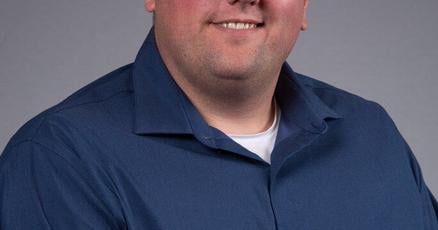It all started with elephants, as it often does.
Jonathan Kubesch, a specialist in forage extension at the University of Arkansas System Division of Agriculture, reminisced about his childhood spent on his grandparents’ farm in Peru, Indiana. Apart from tending to Angus cattle and cultivating beans and corn, they dedicated vast expanses of land to growing alfalfa.
“They used to sell alfalfa hay to circuses for elephants,” Kubesch recalled. “Somewhere, there’s a photo of me at 4 years old perched on an elephant.
“It was a great way to gain firsthand experience,” he added. “Understanding the intricacies of forage cultivation and supporting a livestock enterprise.”
In late March, Kubesch transitioned to the Cooperative Extension Service, the educational outreach division of the Division of Agriculture. Following the completion of his Ph.D. in crop and soil environmental science at Virginia Tech, he spent months developing forage and grassland curriculum for Virginia’s educational system before relocating to Arkansas.
Reflecting on his research journey, spanning from his undergraduate studies at The Ohio State University to his graduate studies at the University of Tennessee, Knoxville, and Virginia Tech, Kubesch highlighted the diverse nature of his projects.
“My research ranged from the practical to the visionary,” he explained. “In Ohio, I explored the potential for native clovers in forage production. In Tennessee, I focused on transitioning forage systems to organic production efficiently. At Virginia Tech, I delved into ‘bee-friendly beef,’ integrating wildflowers into pastures to mitigate fescue toxicosis and support pollinators.
“Ultimately, the goal is maximizing the value of forage systems while contributing to a better world,” he emphasized.
When the opportunity arose to join the Division of Agriculture as a forage specialist, Kubesch and his wife, Sarah Grace, saw it as a fitting prospect.
“The position caught my attention, and I received strong encouragement to apply,” Kubesch shared. “Having family in Sevier County and the desire to be closer to them made Arkansas an appealing destination for us.”
Residing on approximately six acres near Hensley, south of Little Rock, the Kubesch family, including their 7-month-old son, Joseph Cole Kubesch, is settling into their new surroundings.
“Our son wasted no time in crawling as soon as we arrived in Little Rock,” Kubesch chuckled. “I believe he’s destined to be a Hog.”
Looking ahead, Kubesch plans to introduce ducks and turkeys on their land, alongside cultivating forages to sustain them.
“I aim to practice what I preach out there,” he remarked.
Michael Looper, the head of animal science at the Division of Agriculture, outlined Kubesch’s responsibilities, which encompass training, collaboration, and support for county extension agents. Kubesch will also develop and implement educational programs to enhance producer knowledge on optimizing forage utilization for livestock profitability, covering harvested forages, grazing systems, forage adaptation, establishment, and management.
“We are thrilled to welcome Jonathan to the Extension Animal Science team,” Looper expressed. “His expertise and formal training in forages, coupled with his passion for all things forages, will complement our existing programs for beef, small ruminants, and equines.”
Kubesch articulated his focus on aligning scientific research with producers’ practical needs, emphasizing the importance of addressing key questions, determining reliable forage options, and enhancing system resilience against climate variations and labor challenges.
“I’m dedicated to translating producer inquiries into actionable research outcomes,” Kubesch affirmed. “That, to me, is paramount.”
